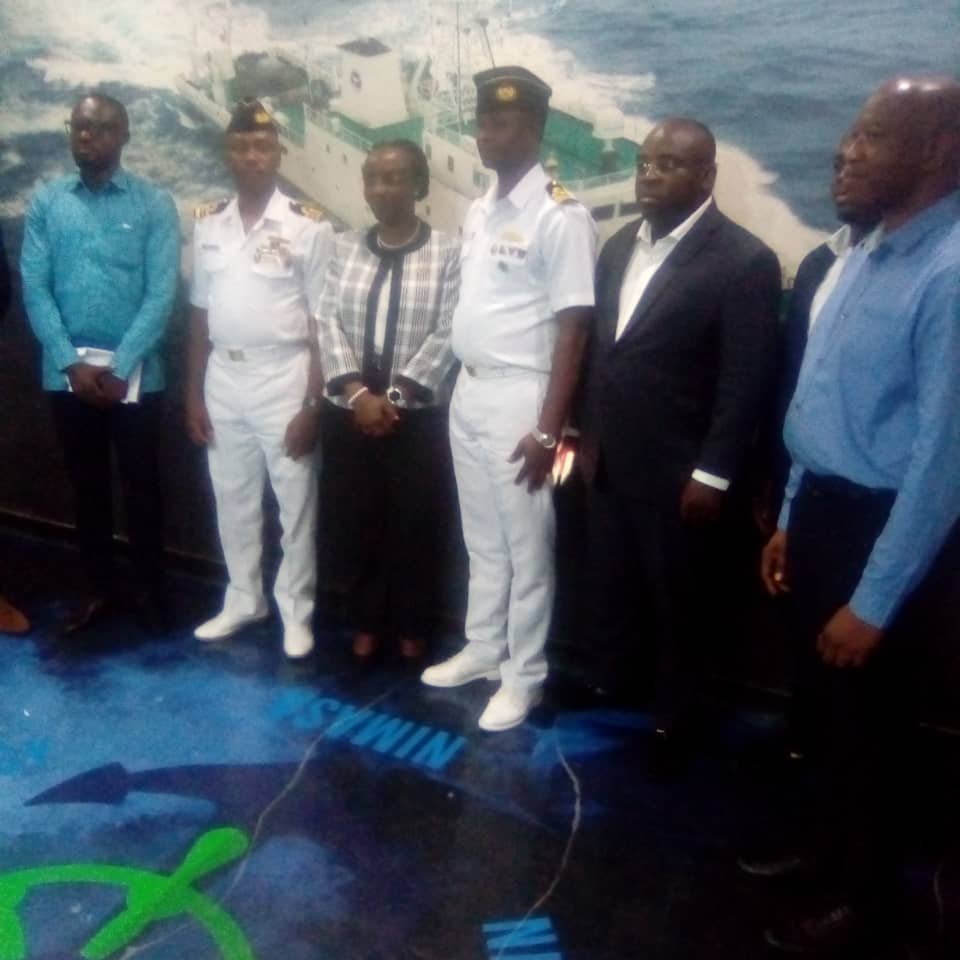After 15 years of port concessioning in the country, the Nigerian ports are still not business-friendly, lack trading predictability, remain non-competitive, non-transparent neither efficient.
This was the verdict at the Powerful Pen Media, a Publication of Maritime Journalists Association of Nigeria (MAJAN) during its Maiden Maritime Summit on the Apapa traffic gridlock.
MAJAN also expressed concern that after several seminars, workshops and conferences held on the subject matter, with several recommendations thereof, oftentimes culminating in one government intervention or another, yet the situation still persists.
The forum with the theme: Apapa Perennial Traffic Gridlock: Has It Defied All Solutions?, held at the Rockview Hotel, Apapa, Lagos to find a workable and lasting solution to the perennial industry challenges.
The summit was attended by members of MAJAN including officials and delegates from the Nigerian Ports Authority, Nigerian Shippers’ Council, Nigerian Railway Corporation, Nigeria Customs Service, Wharf Landing Collecting Fees Authority, Nigeria Union of Journalists, Association of Nigerian Licensed Customs Agents, National Association of Government Approved Freight Forwarders (NAGAFF), National Council of Managing Directors Licensed Customs Agents, Sikkens Paints, Sino Trucks, businessmen, industrialists and several individuals.
Papers were presented by resource persons, who traced the genesis of the crisis, its economic and health consequences and proffered the way forward.
The forum made the following observations: 1. That the hurried process of the port concession by the Federal Government without Environmental Impact Assessment (EIA) and the alienation of a key stakeholder like the Nigerian Shippers’ Council (NSC) in the process leading to the concession;
2. That Poor cargo delivery system by port concessionaires which keeps many trucks waiting on the port access roads;
3. That collapse of petroleum refineries and vandalism of distribution pipelines and the subsequent establishment of oil depots in Ibafo axis of Tincan Island Port increased the volume of vehicular activities in and around the Lagos ports;
4. That policy summersaults by the government –the revocation of the land already allotted to truck owners as a park by the Lagos State Government
5. That poor management of trucks and drivers by owners, which occasioned bad driving habits of the drivers;
6. That bad state and slow reconstruction of port access roads by the contractors; and
7. That lack of space for expansion of port infrastructure in view of a rise in the volume of cargoes throughput.
It also made the following recommendations: That the Federal Government should re-evaluate and re-jig the port reform taking into account the role of the Nigerian Shippers’ Council as the Economic Regulator;
2. That terminal operators (concessionaires) must improve on their cargo handling equipment and delivery systems to enhance quick turnaround of vessels and trucks picking cargo;
3. That diversification of transportation modes–ports should be connected with the rail system; feeder vessels should be made to convey containers out of the ports although barges can still be used to create healthy competition to crash prices and reduce pressure on port access roads;
4. That government should revamp refineries and pipelines for effective distribution of wet cargo mostly petroleum products to stem solely reliance on the Lagos ports;
5. That the Nigerian Ports Authority (NPA) should revoke licenses given to oil depot owners at Ibafo area in Apapa and possibly relocate the oil depots away from port environs;
6. That time has come for the government to reclaim lands around the ports for expansion of port infrastructure including roads and dedicate road lanes for trucks and tankers;
7. That NPA’s call-up is commended but needed to be improved upon for the purpose of monitoring and enforcement with the installation of CCTV in a control room where traffic controllers are stationed for control as against being on the road for control;
8. That truck owner are implored to provide roadworthy trucks and provide standards to checkmate excesses and bad habits of their drivers to stop indiscriminate parking;
9. That on trucks taxing around port access road, it was further observed that many of the truck owners (tankers and flatbeds) do not have a parking and maintenance garage since most have limited space in the garage, overwhelmed by their fleets, which compels and leaves truck owners and their drivers to taxi around the port access road, thereby increasing the traffic; and
10. That it is disheartening, that 15 years after port concession, the Apapa traffic gridlock seems to have defeated and makes a mockery of the whole essence and objective of the port concession and as such, this perception needed to urgently addressed.
At the end of the forum, the participants commended MAJAN for its consistent bold steps in proffering solutions to the monster and concluded that the traffic gridlock was synonymous only to Lagos ports and is man-made.
It insisted that port administrators have failed to manage the ports efficiently, as the Apapa port was typically a case of administrative forecast and planning failure.
It added that Nigerian ports presently under the grip of the gridlock were not profitable and IT-compliant, adding that the E-Call Up system was not functioning as expected and that NPA and other managers of the system should go back to the drawing board to perfect the system.
“Those in positions of authority in the industry should take up responsibilities to tackle the gridlock once and be held accountable if it persists in spite of the recommendations. There is a need to draw a line between the truck owners garage, transit park and call off the park. The triangular truck parking system should be revisited and implemented.
“All hands must be on deck to correct the prevailing perception suggesting that the Apapa traffic gridlock seems to have defeated and making a mockery of the whole essence and object core of the port concession,” it stressed.
 The New Experience Newspapers Online News Indepth, Analysis and More
The New Experience Newspapers Online News Indepth, Analysis and More
